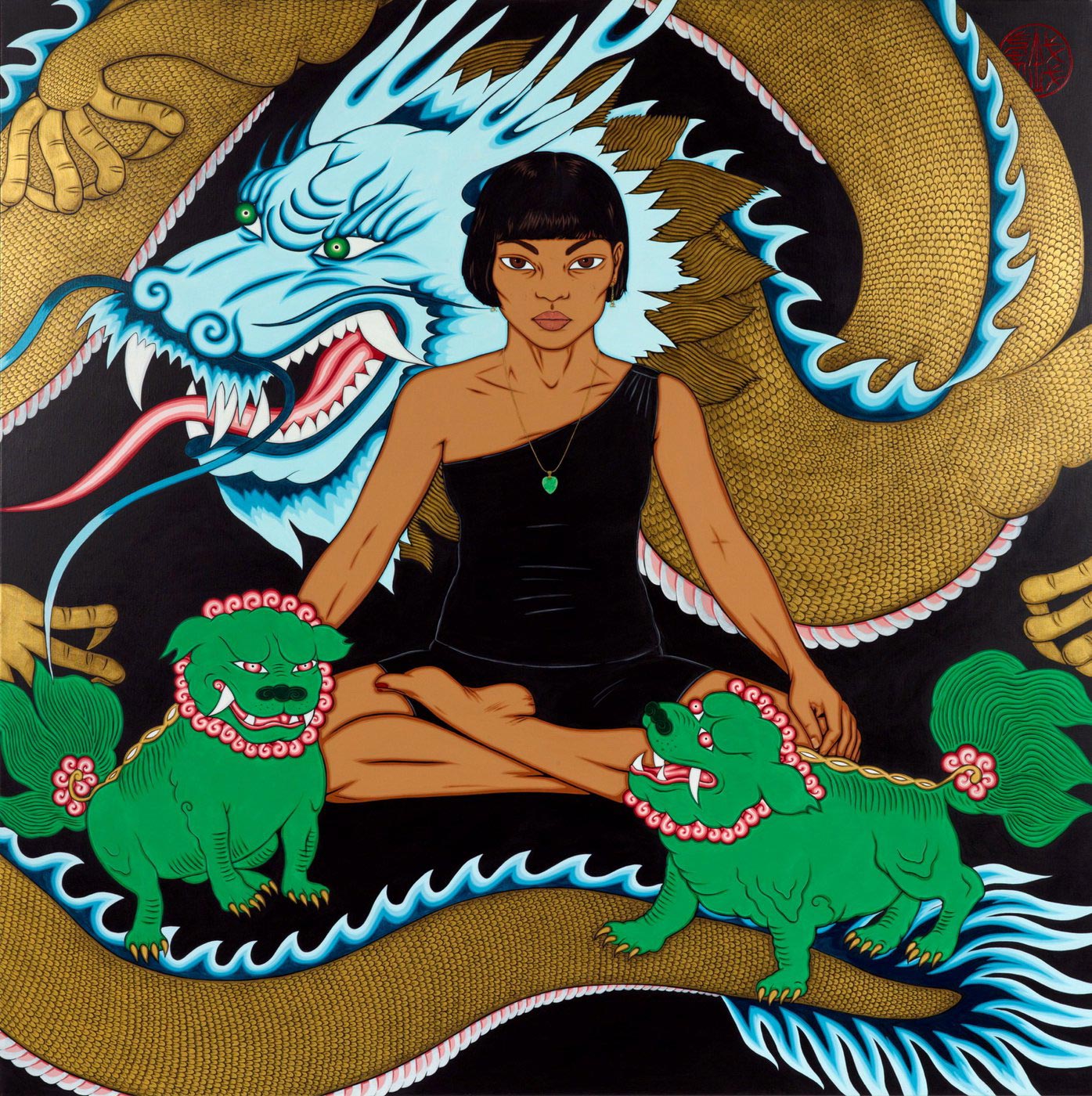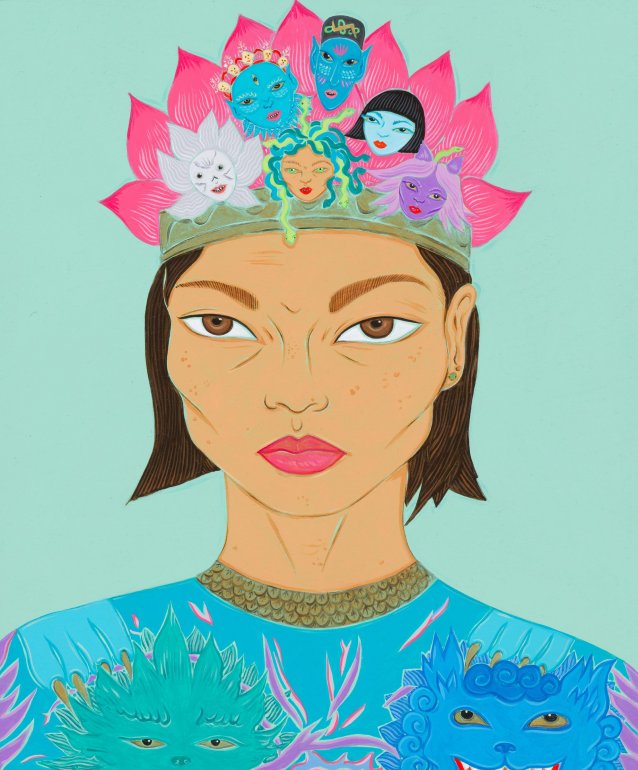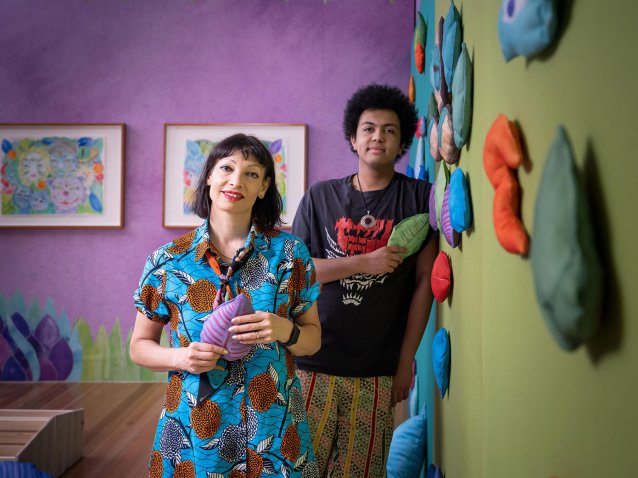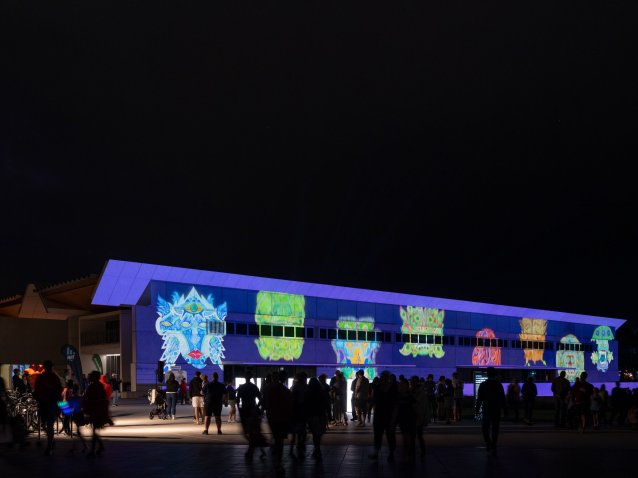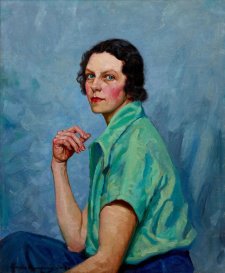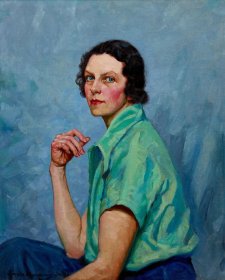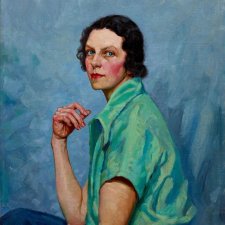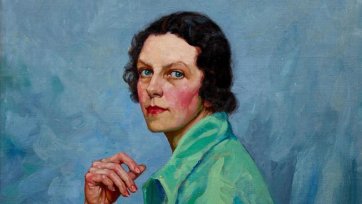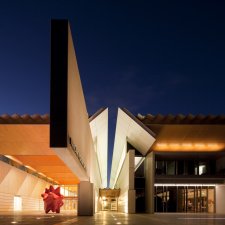In a painting on the left-hand side of the room a woman sits in a half-lotus position. By her side are two green dogs, and a gold dragon curls around her body. It looks like a scene from a comic book or fantasy novel. This mystical, technicolour vision is Kate Beynon’s Self-portrait with guardian spirits, currently on show in Archie 100: A Century of the Archibald Prize at the National Portrait Gallery.
With its blend of European and Asian influences, this work is emblematic of Beynon’s portraiture practice, which explores the politics of race and globalisation, hybrid identity, feminism and family history. Born in Hong Kong in 1970 to a Chinese-Malaysian mother and a Welsh father, Beynon emigrated with her family to Australia as a child. Reflecting her transcultural identity, her work lends itself to a wide range of artistic techniques. In Self-portrait with guardian spirits, for example, she employs elements of traditional Chinese painting and animation to depict her positionality in contemporary society and pay homage to her culturally diverse ancestors.
In applying the transculturality of her life to her art, Beynon has established a creative antiracism. Much of her work critiques xenophobia, especially when it exists in the form of the repetitious question, ‘Where are you from?’ Personally, this is perhaps what moves me most as a viewer of her work. I am a mixed-race Australian creative, my South Asian and Celtic roots rendering me somewhat unintelligible in a white-dominated country. When I first encountered Beynon’s work, I was struck by how much she resists categorisation as both an artist and an individual living in Australia. Clearly, this is intentional on her part: why bother syphoning yourself into a pre-existing box when it is so much more interesting to build your own?
